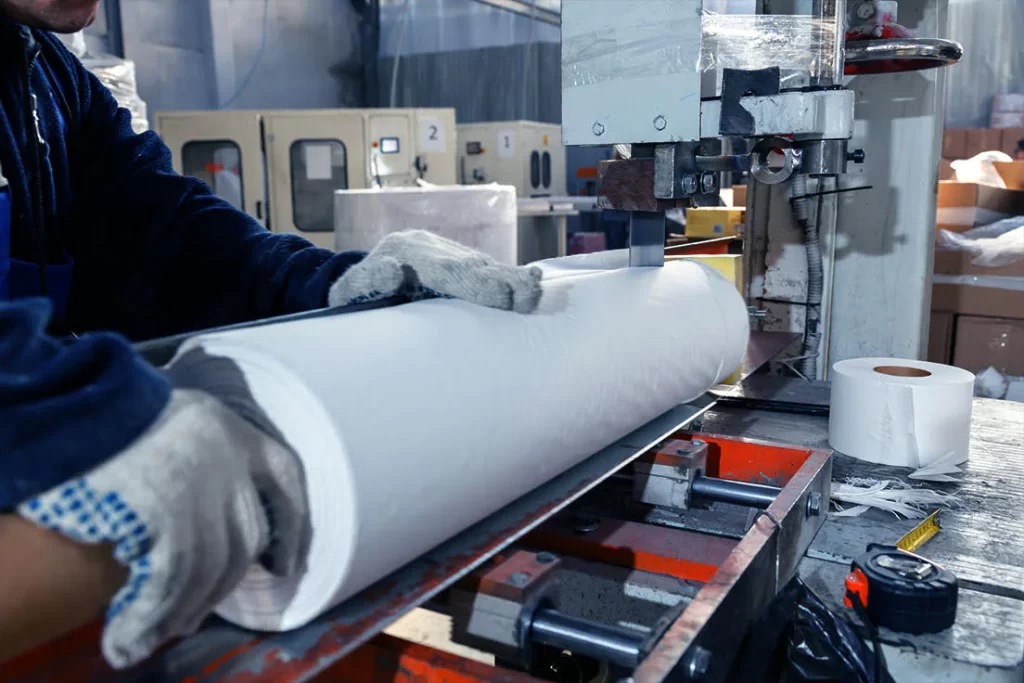
COVID-19 has forced us all into a new reality where we aren’t leaving our homes except for absolutely essential reasons. We’ve already explored how the virus is affecting the food and beverage industry, but there is another industry that has definitely felt the effects of the public health crisis: the paper industry.
People continue to panic buy toilet paper. Willy Shih, a professor at Harvard Business School, told the Boston Globe, “The manufacturers and distributors are trying to catch up, and they will catch up at some point, but buying more than you need is not very helpful. It’s the appearance of shortages drives people to buy more.”
Increase in Demands
Distributers of toilet paper are rationing the amount they give each store, and many stores are only allowing one or two packages per customer. Even with these restrictions in place, toilet paper is still selling out before 9:00 am in some places. Vice president of merchandising and buying at Roche Bros. Supermarkets Inc., Arthur Ackles, told Boston Globe he wasn’t surprised at the shockwaves the panic buying has sent through the entire toilet paper supply chain.
The increased demand has created a significant boom in sales for many companies. Georgia Pacific Corp, the maker of Quilted Northern and Angel Soft, for example, saw its orders for household paper towels and toilet paper double. In contrast, the demand for paper products at hotels, airports, and other public venues decreased.
Georgia Pacific Corp plants typically run 24/7 so it was impossible for them to double production. Even so, according to Milwaukee Journal Sentinel, they were able to hit 120% of their normal capacity. Demand for paper products is always fairly stable so paper manufacturers will need to be careful not to produce too much and then have extra inventory when demand decreases.
The Economic Significance of The Paper Industry
While many industries–like the travel industry–are taking a hit economically, the paper industry is likely to continue to do well, which is a good thing for states like Wisconsin. There is a large paper presence in Wisconsin, and a great deal of their economy relies on these paper mills. There are 35 paper, pulp, and paperboard mills in the state of Wisconsin with a total payroll of almost $2.5 billion annually. In state and local taxes alone, the industry pays about $214 million.
Even Georgia Pacific’s presence in Green Bay is responsible for 2,300 employees. This includes around 1,725 mill workers who manufacture toilet paper, paper towels, and napkins. Other companies like Kimberly-Clark Corp. and Procter and Gamble have a significant presence in the paper industry in Wisconsin.
The Institute for Supply Management’s Manufacturing Report on Business for March reported that of the 18 manufacturing sectors, 10 of them saw growth, including the paper industry. There is no question that there has been a demand that increased significantly on paper products. And Wall Street agrees. Shares of Kimberly-Clark recently increased to a 52-week high of over $149, according to the Milwaukee Journal Sentinel.
Are there Weaknesses in the Overall Supply Chain?
Forbes argues that this public health crisis has exposed weaknesses in the global supply chain, and there is perhaps no better example than the shortages of paper products. This supply chain crisis across multiple industries must be looked at and acted upon. Organizations within the paper industry should create more transparency and put response structures in place to meet the sudden demands placed upon them. Organizations in the paper industry should also be prepared for a significant shuffling of the supply chain following this public health crisis, as stated by CNBC
Increased Production
So how are companies in the paper industry handling this increased demand? Kimberly-Clark Corp, for example, stated that the company had plans to address the rising demand. These plans included reallocating inventory as well as accelerating production.
Manufacturers increasing production is certainly a great start, but industry experts have stated that this is not enough. According to experts like Shih, the supply chain must catch up across the whole industry. “It is a chore to catch up — you have to get it on trucks and into stores, so it’s a complex problem,” Shih said. “Manufacturers are all trying to produce more, but they also need the logistics capacity to move it.”
The Importance of Productivity
As every organization who produces essential products–like paper goods or food and beverages–is now seeing, it’s critical that they find ways to increase productivity. Is your organization having similar issues during this chaotic time?
At POWERS, we are here to help. That’s why we’re offering free tools like webinars and a video series to help organizations to power their productivity. We have even created a new program–the Productivity Sprint–to help organizations in a more immediate way as the demand is so urgent for so many companies. In this stressful and tumultuous time, we are happy to provide solutions for you and your organization.


